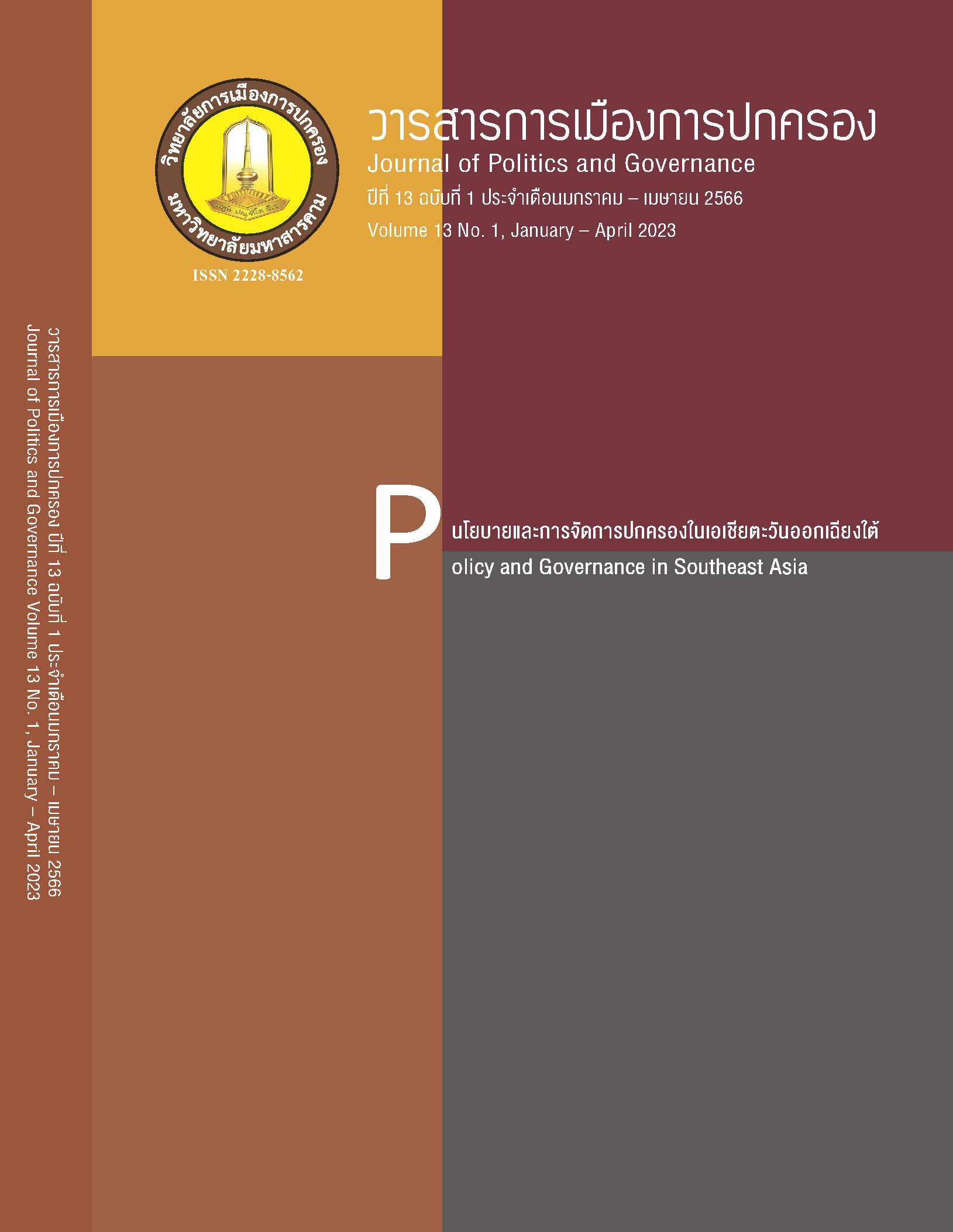Strengthening Civil Society and Resolving Local Government Corruption Problems in Phuket Province
Main Article Content
Abstract
The purposes of the research “Strengthening civil society and resolving local government corruption problems in Phuket province” was to focus on deceitful problems, their causes and impact in the concerned organizations. The instruments of this study were documentary collections supported by non-structural intensive interviews. The data sets were developed from 45 opinion owners, included native population community leaders, freelance entrepreneurs, officials, and private sector business owners. The purposes of the research were: (1) To examine the causes of dishonesty problems in local administrative organizations. (2) To examine the effects of the dishonest causes, and (3) Study of the guidelines to build the strength of the social community sector to solve local administrative organization dishonesty problems in Phuket province. The results of the study revealed: (1) For the causes of dishonesty in local administrative organizations, the sample group gave as the most significant point gaps in the law, as the law sets are unrelated to current procedures, the laws have neither been edited nor revised. As a result, persons who break the laws cannot be punished. A chance for doing wrong can take place. (2) For the effects of such problems, the sample group gave the most significant point as local development, because it is of importance politically, economically, and socially to develop for a better quality of life. With dishonest officials and politicians in the local area, inappropriate, non-auditable, and non-transparent budgets should not be allowed to support growth. (3) For the ways to build strength in the community sector and to solve such problems, the sample group gave the most significant point as network strength, because activities can be overseen strong honest populace networks, who emphasized transparency of actions.
Article Details
References
กรมการส่งเสริมส่วนท้องถิ่น. (2559). การวิเคราะห์สถานการณ์การป้องกันและปราบปรามทุจริตของสำนักงานส่งเสริมการปกครองท้องถิ่น. กรุงเทพฯ: กระทรวงมหาดไทย.
การทุจริตคอร์รัปชั่นในองค์กรปกครองส่วนท้องถิ่น: มาตรการและกลไกการป้องกัน. สืบค้นจาก http://www.siamintelligence.com/cor-rup-tion-local-administration/
เกรียงศักดิ์ เจริญวงศ์ศักดิ์. (2547). กลเม็ดเด็ดปีกคอรัปชั่น. กรุงเทพ: บริษัท ซัดเซสมีเดีย จำกัด.
โกวิทย์ พวงงาม. (2555). การปกครองท้องถิ่นไทย หลักการและมิติใหม่ในอนาคต (พิมพ์ครั้งที่ 8). กรุงเทพฯ: สำนักพิมพ์วิญญูชน.
ชาย โพธิสิตา. (2556). ศาสตร์และศิลป์แห่งการวิจัยเชิงคุณภาพ.กรุงเทพฯ: อมรินทร์พริ้นติ้งแอนด์พับลิชชิ่ง.
ญาดา กาศยปนันทน์. (2554). ความผิดมูลฐานเกี่ยวกับทรัพยากรธรรมชาติ ตามพระราชบัญญัติ ป้องกันและปราบปรามการฟอกเงิน พ.ศ. 2542: ศึกษากรณี การกระทำความผิดเกี่ยวกับน้ำมันเชื้อเพลิง . กรุงเทพฯ: จุฬาลงกรณ์มหาวิทยาลัย.
ศิริวรรณ มนอัตระผดุง. (2555). สถานการณ์การคอร์รัปชั่นของประเทศไทย. วารสารวไลยอลงกรณ์ปริทัศน์, 2(1), มกราคม - มิถุนายน 2555.
สถาบันพระปกเกล้า. (2558). ข้อกำหนดการวิจัย (TOR) เรื่อง การประเมินองค์กรปกครองส่วนท้องถิ่นเพื่อเข้ารับรางวัลพระปกเกล้าประจำปี 2559. นนทบุรี: สถาบันพระปกเกล้า.
สุรพงษ์ แสงเรณู. (2559). ผลกระทบการทุจริตประพฤติมิชอบในการบริหารงานบุคคลขององค์กรปกครองส่วนท้องถิ่นภาคตะวันออกเฉียงเหนือ. กรุงเทพฯ : มหาวิทยาลัยราชภัฏวไลย อลงกรณ์.
สำนักงานคณะกรรมการป้องกันและปราบปรามการทุจริตแห่งชาติ. (2559). ปัญหาการทุจริตในองค์กรปกครองส่วนท้องถิ่น. กรุงเทพฯ: กระทรวงยุติธรรม.
เอกพงศ์ ไทรพุฒทอง. (2559). การพัฒนาเครือข่ายการทำงานสายปฏิบัติการระหว่างองค์กรของสํานักงานคณะกรรมการป้องกันและปราบปรามการทุจริตแห่งชาติกับสํานักงานป้องกันและปราบปรามการฟอกเงิน. กรุงเทพฯ: สถาบันบัณฑิตพัฒนบริหารศาสตร์.


